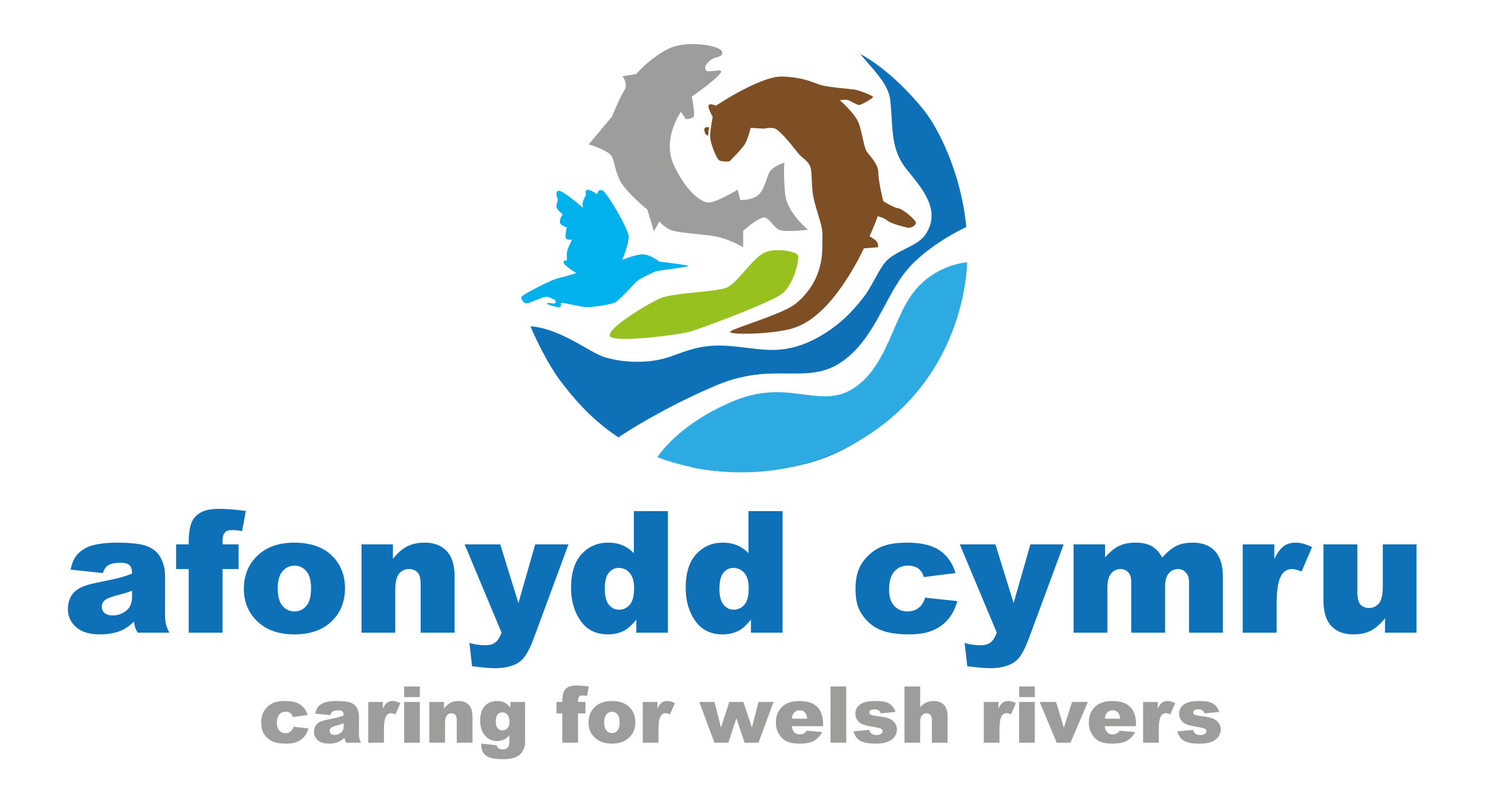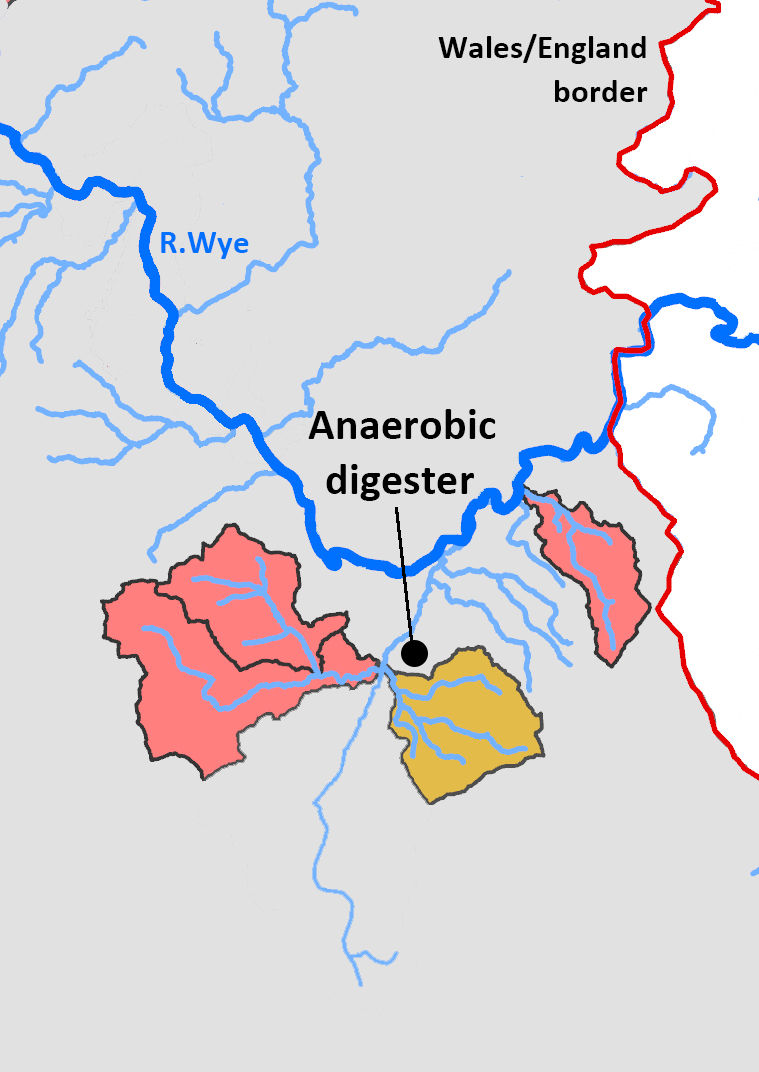A map showing four waterbodies in the Wye catchment that are facing potential downgrades in the latest assessments. All are within the spreading areas of a major anaerobic digester plant. Three are potentially failing because of high phosphate levels (shown in red on the map), one because of Biological Oxygen Demand (BOD, shown in orange). Natural Resources Wales are still to confirm the results.Â
Tuesday 18th July, 2023
On 9th March this year, Afonydd Cymru and Fish Legal wrote to Welsh Government expressing their concerns that weak regulation and gaps in the planning system were allowing an expanding anaerobic digester (AD) industry to pollute Welsh rivers. In the letter, we called for an urgent and full review of the regulatory and planning controls of ADs, from construction through to the spreading of digestate.
Sadly, on the very same day our letter was submitted came news of another AD-related pollution on the Afon Teifi. And while Natural Resources Wales are investigating that, they are also looking into potential downgrades of water quality in parts of the Wye catchment where digestate spreading is known to take place.
The initial results from the regulator’s latest Water Framework Directive assessments (2015 ““ 2021) show that four waterbodies in close proximity of an AD plant near Talgarth have possibly deteriorated, three because of high phosphate levels. Amongst other things, this AD plant processes poultry manure. While planning for new poultry units appears to have now been suspended by Welsh Government, previous applications were passed by Powys planners because they were apparently satisfied that the extra manure sent to this AD plant would not affect the Wye SAC.
On the very same day of our letter to Welsh Government, yet another suspected AD-pollution was happening on the Teifi, a river that is no stranger to such incidents.
Meanwhile, in early June, there were reports from England of the Health & Safety Executive closing down an AD plant in Herefordshire due to it being operated in an “unsafe” way. At around the same time, a suspected digestate pollution on a tributary of the North Esk in Scotland caused a fish kill, which SEPA are currently investigating. And these are just the very recent suspected AD-related incidents.
There can be no doubt that anaerobic digesters can pose a serious threat to rivers not just in Wales but across the UK. The list of catastrophic incidents is a long one and comes with compelling evidence of diffuse pollution resulting from the spreading of digestate. Added to this are further environmental issues arising from the growing of feed crops. All things considered, the regulatory and planning processes for this industry would be expected to be tight. Yet quite the opposite is true.
There can be no doubt that anaerobic digesters can pose a serious threat to rivers not just in Wales but across the UK. Welsh Government’s silence on this issue is concerning.
While receipt of our letter was acknowledged and assurances given that it was being considered, it is now four months and we still await a reply in respect of the issues that we have raised. We are working hard to support Welsh Government on the Better River Water Quality Taskforce and Nutrient Management Boards in Wales, especially when it comes to excessive nutrient levels. However, that is something of a challenge without a firm commitment to at least consider looking at an industry that is building a considerable record of environmental damage.

